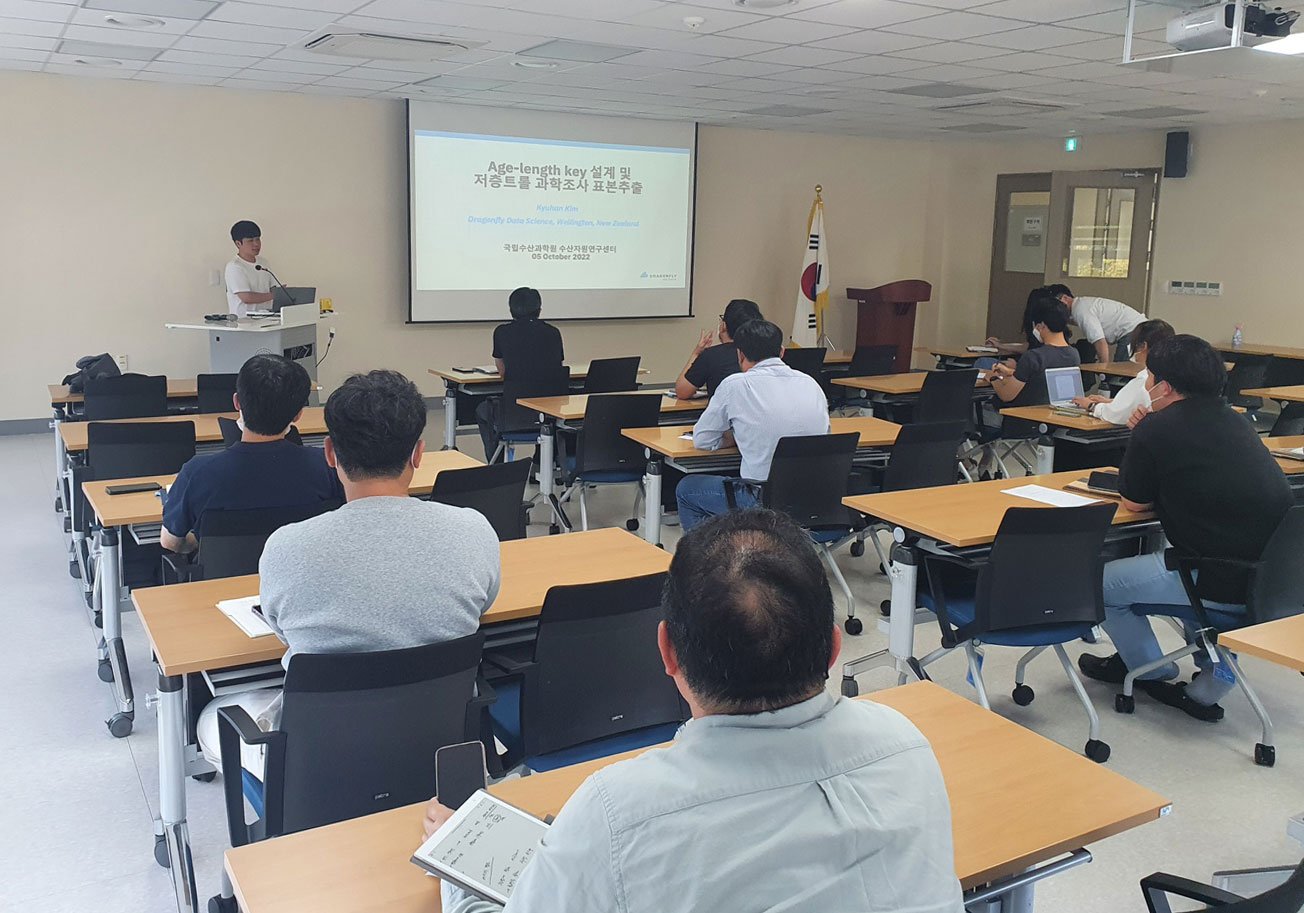It’s been nearly 5 years since Kyuhan Kim left home to study for a statistics PhD in New Zealand. In that time he has become a Dr and worked at Dragonfly as a fisheries scientist for a year.
The visit was his first for nearly 3 years. Not only was it an opportunity to see his family again, but also to share his research in best-practice fisheries science.
Kyuhan presented part of his PhD research at the annual meeting of PICES in late September. PICES is an intergovernmental science organisation that coordinates marine research in the North Pacific. Member countries include China, Japan, Russia, US, Canada and South Korea. This year the meeting was conveniently held in his hometown of Busan.
“I spoke about the stock assessment models I developed at university and in my work at Dragonfly. I suggested some possible improvements for the current methods. About 30 people were in my session, and there was quite a lot of interest in my work.”
Kyuhan spent time sharing his knowledge with the staff and marine biology students at Pukyong National University, where he studied for his masters degree.
“My master’s supervisor invited me to give a talk to the students and faculty members. I was surprised and pleased to be introduced as Dr Kim! I discussed the role of data science in fisheries management and encouraged the students to learn some programming skills to manage their data more efficiently.”
He also helped lead a software workshop for fisheries scientists and gave a presentation at South Korea’s National Institute of Fisheries Science (NIFS).

“My presentations started plenty of positive discussions, especially how the methods could contribute to Korean fisheries science and management. I talked about survey design and collecting data that’s appropriate for stock assessments and fisheries management, rather than building a model first.”
Kyuhan also presented some of Dragonfly’s work to Korean scientists and postgraduate students. He highlighted the tools we use routinely, such as data management systems, visualisation processes and a reproducible approach to analysis and reporting.
“My PhD research and the work at Dragonfly has shown me the importance of having good communication between the people collecting data and the modellers. It was good to be able to share that experience with fisheries biologists and modellers at NIFS.”
Top image: Taejongdae seaside park with the city of Busan in the distance.
Kyuhan completed his PhD at Victoria University of Wellington in 2022. His research was supported by a Korea New Zealand Agricultural Cooperation Scholarship and a Victoria Doctoral Scholarship.


